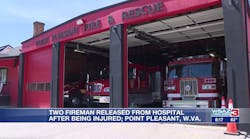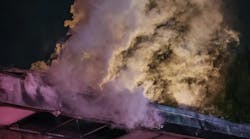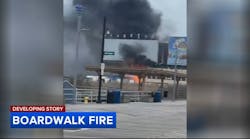This article was first published in OnScene. Click Here to view this article on the IAFC website!
I often joke that I'm on a first-name basis with the man who shuts off my electricity each month — that's how well I manage my finances. But I am smart enough to "follow the money." And these days, the money I'm following is flowing into for-profit EMS.
American Medical Response (AMR), which claims to be the largest private ambulance company in the country, announced on Feb. 14 that it was being purchased by the large private-equity firm of Clayton, Dubilier and Rice for $3.2 billion, or roughly $64 a share. If the transaction is completed, AMR stock would no longer be publicly traded through the New York Stock Exchange, but would be wholly owned by a private company.
According to the Clayton, Dubilier and Rice website, "CD&R's investments span a number of industry segments with enterprise values ranging from $1 billion to $15 billion. Our investments are well-positioned market leaders where significant value can be created through underlying business building. From our landmark purchase from IBM of what is now Lexmark International, a publicly traded global inkjet printer manufacturer, to the $15 billion acquisition of rental car leader Hertz from Ford Motor Company, CD&R has a history of helping management transform businesses."
Since that announcement, lawsuits have been filed against AMR and Clayton, Dubilier and Rice alleging that board members and corporate owners stood to gain the most from the deal. AMR's share price was $70.66 on the last trading day before the acquisition was announced, well above the announced sale price of $64 a share. Some analysts believe the value of the shares of AMR should be between $70 and $75.
Not to be outdone, on March 28, Rural/Metro announced that the private-equity firm Warburg Pincus was buying the ambulance and fire protection services provider for $438.2 million. If Rural/Metro stockholders approve the deal, they would receive $17.25 per share in cash, which is a 37% premium over the company's closing stock price of $12.55 the day before the announcement was made. Rural/Metro's board unanimously approved the move to take the company private and the deal is expected to close by the end of June.
Large private-equity firms are pouring money into for-profit ambulance companies. These private-equity firms apparently see an opportunity to make lots of money in EMS in the future. What do they know that I don't know? Maybe huge profits are to be made when 88 million baby boomers grow old and need more health care. Many ambulance providers, including the fire service, receive EMS billing reimbursement for ambulance transport between 45% and 70%. When 42 million more people are provided health insurance through the Affordable Care Act, ambulance billing may become much more profitable; could that be it?
Maybe these private-equity firms see an opportunity in major cities where, for the most part, fire departments operate EMS systems, since the politicians want to cut spending and find ways to outsource big-budget items like fire and EMS services. Maybe it is something else. All I know is back-to-back announcements that AMR and Rural/Metro are being purchased by major private-equity firms are enough to convince me that people smarter than me see an opportunity to make money and they are putting their money into those ventures.
What I do know is that when a private-equity firm buys an operation like AMR or Rural/Metro, it has lots of cash that it can infuse into an operation to better position it in the market and expand operations. Are those markets in which the fire service now operates? My guess is yes.
Look at the 20 most-populous cities in the United States — 17 now operate fire-based EMS. They are New York, Los Angeles, Chicago, Houston, Phoenix, Philadelphia, San Antonio, San Diego, Dallas, San Jose, Detroit, San Francisco, Jacksonville, Indianapolis, Austin, Columbus and Memphis. Now look beyond the top 20 — many of those cities also operate fire-based EMS. They include Baltimore, Washington, DC, Kansas City, St. Louis, Nashville, Milwaukee, Seattle and Las Vegas.
Private-equity firms, whose job is to make money for their shareholders, are ready to infuse more cash into AMR and Rural/Metro. In the 1990s, AMR, Laidlaw, Rural/Metro and other large corporations acquired private ambulance companies and tried to expand into fire service markets. It looks like history is about to repeat itself.
GARY LUDWIG, MS, EMT-P, a Firehouse® contributing editor, is a deputy fire chief with the Memphis, TN, Fire Department. He is chair of the EMS Section for the International Association of Fire Chiefs (IAFC), was appointed to the National EMS Advisory Council by the U.S. Secretary of Transportation and is a member of the International Association of Fire Fighters (IAFF) EMS Standing Committee. Ludwig has a master's degree in business and management and is a licensed paramedic. He can be reached at www.garyludwig.com.





